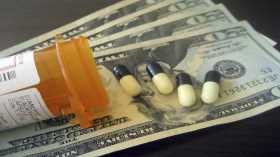
Source: Composite image by G_marius
Homeopathy has long been used to treat certain diseases. Some claim it does work, other that it is a pseudoscience. Do you think it is effective?
There is still no consensus among the medical doctors and scientists on the effectiveness of homeopathy. Some argue that homeopathy does work and really helps curing or mitigating the effects of some diseases. Homeopathic supplements are often used to lose weight and reinforce health in people that don't suffer from any particular disease. Others believe that it's just a placebo. It is one of the controversial debates in health, such as vaccines or mercy killing.
Homeopathy is an alternative medecine, a system of therapeutics founded in 1796 by the German physician Samuel Hahnemann, based on the principle of similia similibus curantur ("like cures like"), with the underlying logic that our bodies know what they are doing and that symptoms are simply the way in which it takes action against diseases. Thus homeopathy is based on the idea of prescribing patients (sick people) substances that would cause on healthy people the same symptoms of the disease being treated. Thus the homeopathic medicine acts as a stimulus aiming at triggering a natural vital reaction.
Some doctors use homeopathy and believe it's a real science with proven results. However the majority of medical professionals and pharmaceutical companies state that there is very little evidence on homeopathy effectiveness and often define it as a pseudoscience. What do you think? Does homeopathy work? Do you think it's good for you?
If you change your mind, you can change your vote simply by clicking on another option.
New to netivist?
Join with confidence, netivist is completely advertisement free. You will not receive any promotional materials from third parties.
Join the debate
In order to join the debate you must be logged in.
Already have an account on netivist? Just login. New to netivist? Create your account for free.
You are viewing a filtered list of comments. Click the button above to view all comments.
Last edited on 02 June 2015 @ 15:35
It depends what you mean by homeopathy. True homeopathic treatments contain no active ingredients. If they do, they are better described as herbal remedies. The best evidence demonstrates that both homeopathy (in the traditional form of a "succussed" and "potentised" water based remedy) and acupuncture are as effective as placebo. Herbal remedies have their own problems, in terms of dosage, contamination, and outlandish claims to efficacy. Nevertheless, these may at least contain some active ingredients. Whether they are safe or not is another matter. Those that are safe and effective tend to be better known as pharmaceuticals. That lots of people use them and buy them is no basis for arguing they work. It may not be a marginal issue, but it could demonstrate that people are happy to buy a placebo... which I suppose is fair enough, if that's what they want. I haven't read up on the evidence base for hypnosis, so can't comment on that.
Join the debate
In order to join the debate you must be logged in.
Already have an account on netivist? Just login. New to netivist? Create your account for free.


















